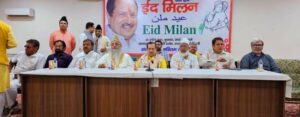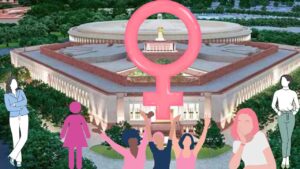B.R. Ambedkar – India’s Visionary Crusader for Social Justice, Equality and Reform

Learn about the life and legacy of Babasaheb Ambedkar, the Indian jurist, economist, social reformer, and politician who played a crucial role in drafting the Indian Constitution and fighting for social justice and equality. Explore his vision and contributions on his birth anniversary and discover why he remains an inspiration for millions of people in India and around the world.
Bhimrao Ramji Ambedkar, popularly known as B.R. Ambedkar, was a social reformer, politician, and jurist who played a pivotal role in shaping the political, social, and economic landscape of India. He was born on April 14, 1891, in the town of Mhow in present-day Madhya Pradesh, India, to Ramji Maloji Sakpal and Bhimabai Sakpal. His family belonged to the Mahar caste, which was considered to be one of the lowest castes in the traditional Hindu caste system. Despite facing significant social and economic obstacles due to his low-caste status, Ambedkar was a gifted student and excelled academically throughout his school and college years.
Ambedkar’s Education
Ambedkar began his education at a local government school in Mhow and later attended Elphinstone College in Bombay (now Mumbai), where he earned a Bachelor of Arts degree with honors in economics and political science in 1912. After completing his undergraduate studies, Ambedkar traveled to the United States to pursue further studies at Columbia University in New York. At Columbia, he earned a master’s degree in economics in 1915 and a Ph.D. in economics in 1927. His doctoral thesis, which was titled “The Evolution of Provincial Finance in British India,” was a detailed study of the financial system in colonial India and earned him widespread recognition in academic circles.
In addition to his economics degrees, Ambedkar also earned a degree in law from Gray’s Inn in London in 1920. This degree allowed him to practice law in India and played a critical role in his later work as a legal and political activist.
Ambedkar: A Prolific Writer
Ambedkar was a prolific writer and authored several books on various subjects, including social reform, economics, politics, and religion. Some of his notable works include “Annihilation of Caste,” “The Buddha and His Dhamma,” “Pakistan or The Partition of India,” “Who Were the Shudras?,” and “The Untouchables.” In addition to his books, Ambedkar also published several newspapers and journals, including Mooknayak, Bahishkrit Bharat, and Janata. These publications were instrumental in raising awareness about the issues faced by the Dalit community and advocating for their rights and interests.
Empowering the Marginalized: The Revolutionary Legacy of Jyotiba Phule and the Power of Education
Family Life
Ambedkar’s family played a critical role in shaping his life and work. His experiences of discrimination and oppression as a member of a low-caste family undoubtedly contributed to his lifelong commitment to social justice and equality, and his family’s support and encouragement helped him to overcome the many challenges he faced in pursuing his goals. Ambedkar was married twice in his lifetime. His first wife was Ramabai, whom he married in 1906 when he was just 15 years old. Sadly, Ramabai passed away in 1935, leaving Ambedkar devastated. He later married Dr. Savita Ambedkar, who was a close associate and supporter of his work.
Legal and Political Activist
Ambedkar’s contributions to Indian society were immense. He played a key role in drafting the Indian Constitution, which was adopted in 1950, and served as India’s first Minister of Law and Justice. Ambedkar’s tireless efforts to promote the rights and interests of the Dalit community helped to break down many of the barriers that had long kept them oppressed and marginalized. His ideas and principles continue to inspire people today, and his legacy as one of India’s greatest social reformers and thinkers is firmly established.
ChatGPT: The Language Model that’s Revolutionizing Natural Language Processing
In addition to his work as a legal and political activist, Ambedkar was also a prominent social reformer who devoted his life to fighting against social discrimination and inequality in India. Throughout his career, he worked tirelessly to challenge the traditional Hindu caste system, which had long been used to oppress and marginalize millions of people in India.
Ambedkar’s efforts to promote social equality and justice were rooted in his own experiences of discrimination and oppression as a member of a low-caste family. From an early age, he was acutely aware of the many injustices that were perpetrated against Dalits, or “untouchables,” who were often denied even the most basic human rights and treated as second-class citizens.
One of Ambedkar’s most significant contributions to the cause of social reform was his work to promote the education and empowerment of Dalits. He recognized that education was the key to breaking down the barriers of caste-based discrimination and worked tirelessly to establish schools and colleges for Dalit students. He also encouraged Dalits to seek higher education and professional opportunities and believed that education was essential for achieving social and economic equality.
Top Tourist Places in Kerala
Ambedkar’s commitment to social reform was also reflected in his efforts to promote religious reform and tolerance in India. He was a strong advocate for the rights of religious minorities and worked to promote greater understanding and cooperation among India’s diverse religious communities. His own religious beliefs were influenced by the teachings of the Buddha, and he saw Buddhism as a way to promote peace, compassion, and social justice in India.
Despite facing significant opposition and criticism from traditionalists and conservatives, Ambedkar’s work as a social reformer and political activist helped to transform Indian society and paved the way for greater equality and justice for all. Today, he is widely recognized as one of India’s greatest thinkers and reformers, and his legacy continues to inspire people around the world who are committed to promoting social justice and equality.








